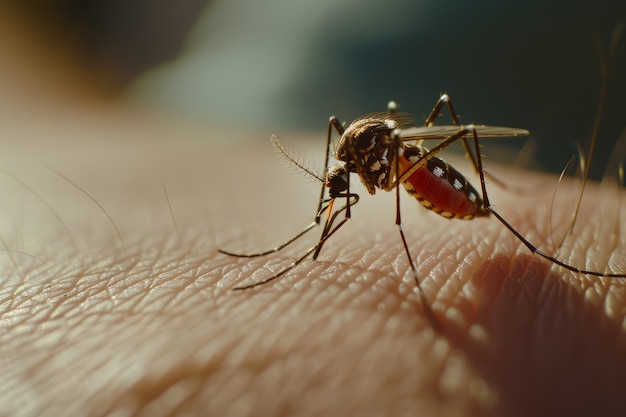Health officials in Davis County have confirmed the first fatality in the region linked to the West Nile Virus (WNV). The announcement, made by the Davis County Health Department, marks a sobering development in Utah’s ongoing battle with mosquito-borne illnesses. The individual died from neuroinvasive West Nile Virus, a severe form of the disease that affects the central nervous system. Alongside the death, two additional people have been hospitalized with the virus, underscoring the importance of vigilance and preventive measures as the transmission season continues.
West Nile Virus is primarily spread through the bite of an infected mosquito, particularly the Culex species. These mosquitoes become carriers after feeding on infected birds, especially crows, jays, and magpies. While most human infections are mild or asymptomatic, about 1 in 5 people develop West Nile fever, which includes symptoms like fever, headache, body aches, joint pain, vomiting, diarrhea, or rash.
In rare cases—less than 1% of infected individuals—the virus can progress to a severe neuroinvasive form, leading to conditions such as encephalitis (brain inflammation) or meningitis (inflammation of the membranes surrounding the brain and spinal cord). Symptoms of severe illness include high fever, neck stiffness, disorientation, coma, tremors, seizures, and paralysis. Recovery from neuroinvasive WNV can take weeks or months, and some neurological effects may be permanent.

Transmission of West Nile Virus occurs primarily through infected mosquito bites.
The Davis County fatality is part of a broader uptick in West Nile activity across Utah. As of the latest reports, state and county health departments have identified at least eight human cases of West Nile Virus this season, with the majority occurring in northern Utah. Davis County has been particularly affected, with three confirmed cases including the fatal one.
Public health officials stress that while WNV is not new to the region, increased mosquito activity due to warm temperatures and standing water has elevated the risk. Surveillance data shows that mosquito pools tested across the county have returned positive for the virus, indicating ongoing transmission in the environment.
While anyone can contract West Nile Virus, certain groups face a higher risk of developing severe illness. These include individuals over the age of 60 and those with underlying medical conditions such as cancer, diabetes, hypertension, or kidney disease. People with weakened immune systems are also more vulnerable.
Health officials emphasize that prevention is key, especially for high-risk populations. Simple actions can significantly reduce the chances of mosquito bites and, by extension, infection.
The Davis County Health Department is urging residents to take proactive steps to minimize exposure to mosquitoes. Here are evidence-based recommendations:

Simple preventive measures can significantly reduce the risk of mosquito bites.
In response to the confirmed cases, the Davis County Mosquito Abatement District has intensified surveillance and control efforts. This includes increased trapping and testing of mosquitoes, targeted larviciding in breeding areas, and adulticiding (spraying) in high-risk zones. Public notifications are issued ahead of spraying operations to allow residents to take precautions.
Health officials are also working with healthcare providers to ensure prompt diagnosis and reporting of suspected WNV cases. Early detection is crucial for managing severe illness and monitoring the spread of the virus.
Although mosquito activity typically declines with cooler fall temperatures, health authorities warn that the risk persists until sustained cold weather arrives. Residents are encouraged to remain vigilant through September and into early October.
The confirmed death serves as a stark reminder that West Nile Virus is not just a mild summer nuisance—it can be life-threatening. By staying informed, taking preventive actions, and supporting public health initiatives, communities can reduce the impact of this preventable disease.
For the latest updates on West Nile Virus in Utah, visit the Davis County Health Department website or contact your local mosquito abatement district.

Health

Health

Health

Health

Health

Fitness

Health

Health